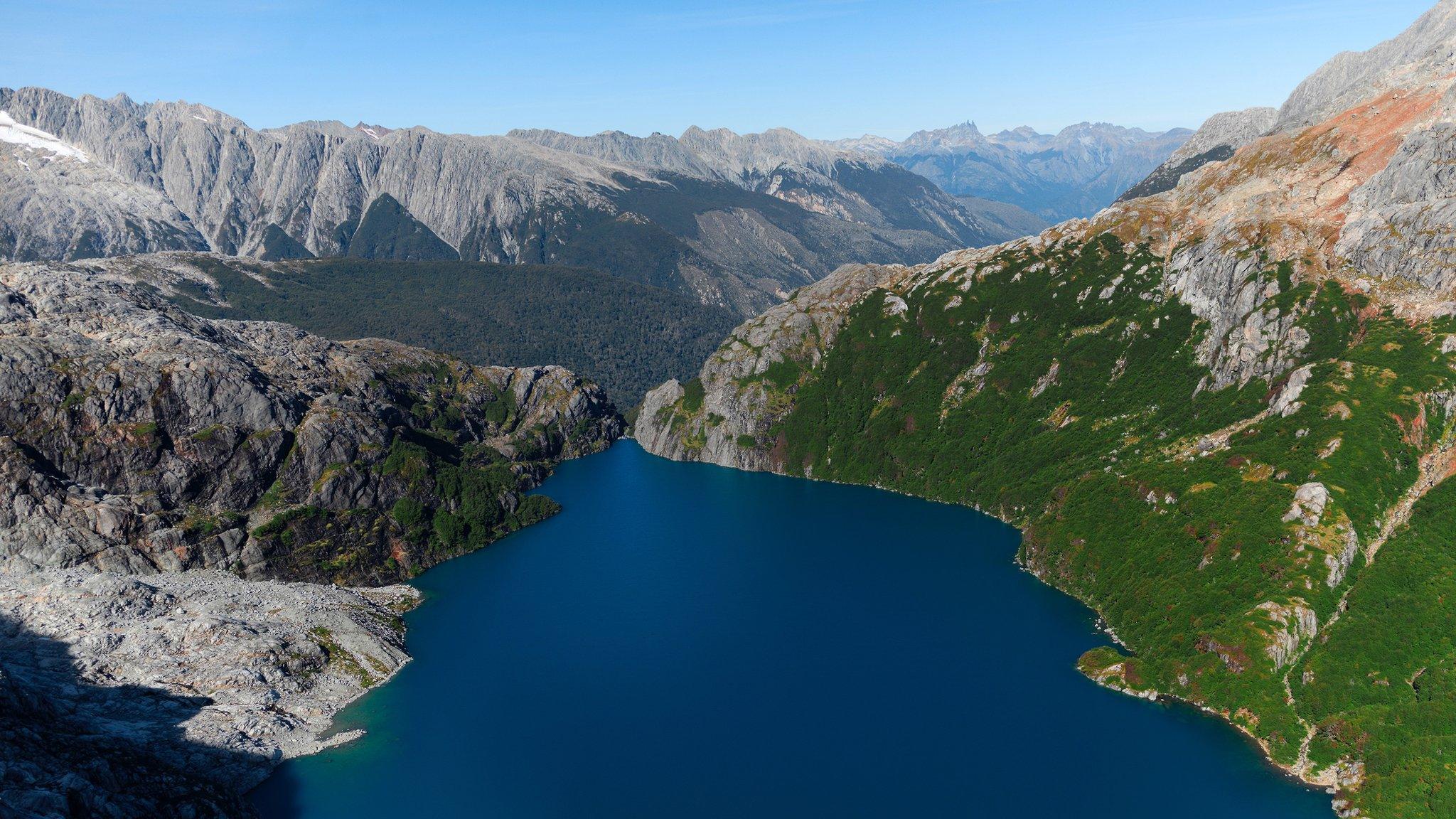Colombia's Chiribiquete national park to be extended
- Published
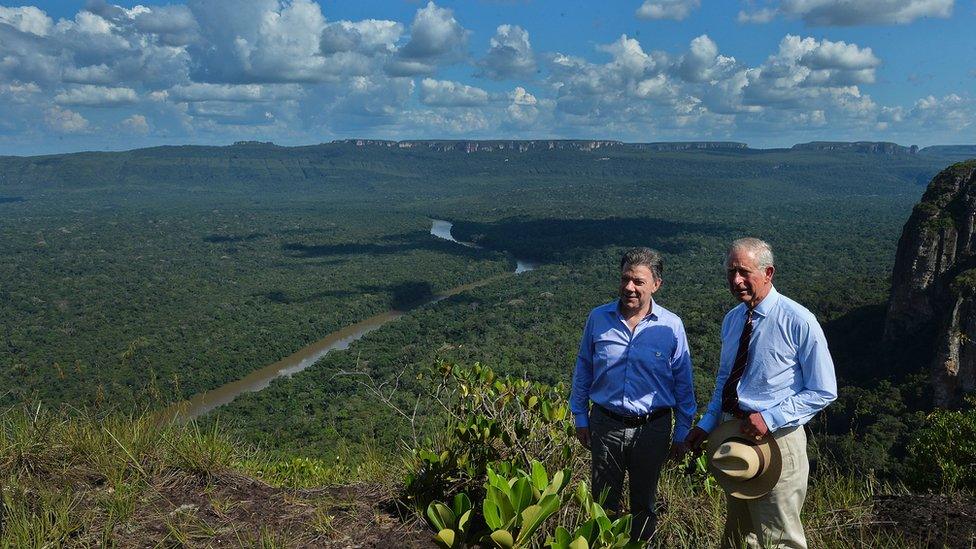
In 2014, President Santos took Prince Charles to Chiribiquete National Park
Colombian President Juan Manuel Santos has announced plans to extend the country's largest national park by 1.5 million hectares.
Chiribiquete National Park currently covers an area of 2.8 million hectares in the Amazon region.
The lowlands of Chiribiquete have one of the highest rates of plant diversity in the northern Amazon.
The park is also famous for its table-top rock formations known as tepuis, which rise out of the forest.
Chiribiquete was first declared a national park in 1989. It is located on one of the world's oldest rock formations, the Guiana Shield.
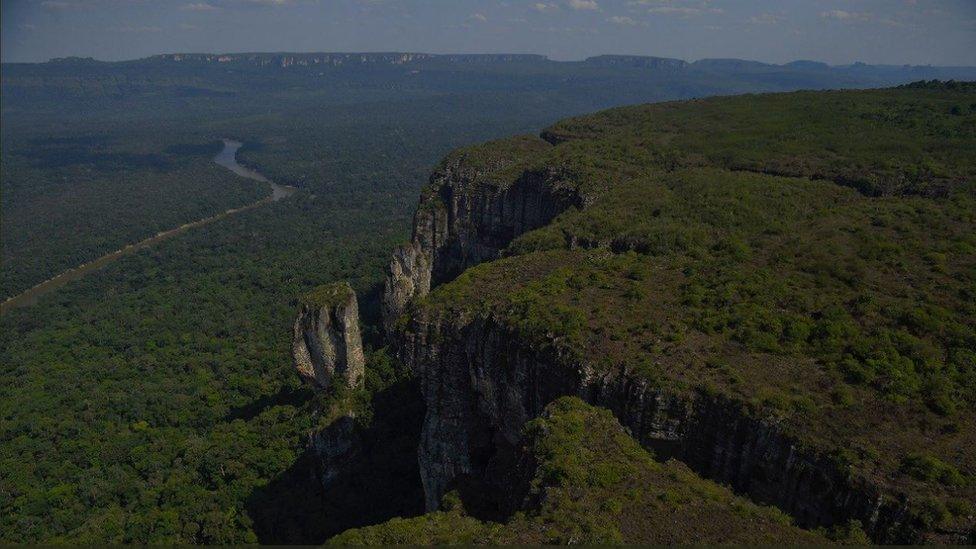
The park is famous for its tepuis
Because it is extremely hard to access, only a small part of the park has been surveyed.
Not only is it rich in wildlife, some of which is unique to the area, but it also bears traces of ancient human life.
In 2014, photographer Francisco Forero Bonell documented ancient paintings on the sheer rock faces depicting animals and humans which are thought to have been made by one of the indigenous groups which inhabited the area long before the arrival of the Spanish Conquistadors.
The Colombian government hopes that Chiribiquete will be added to Unesco's list of World Heritage sites this year.
The park is currently on Unesco's tentative list after Colombian Foreign Minister María Ángela Holguín put it forward for inclusion last year.
The World Heritage Committee is due to study the application in June.
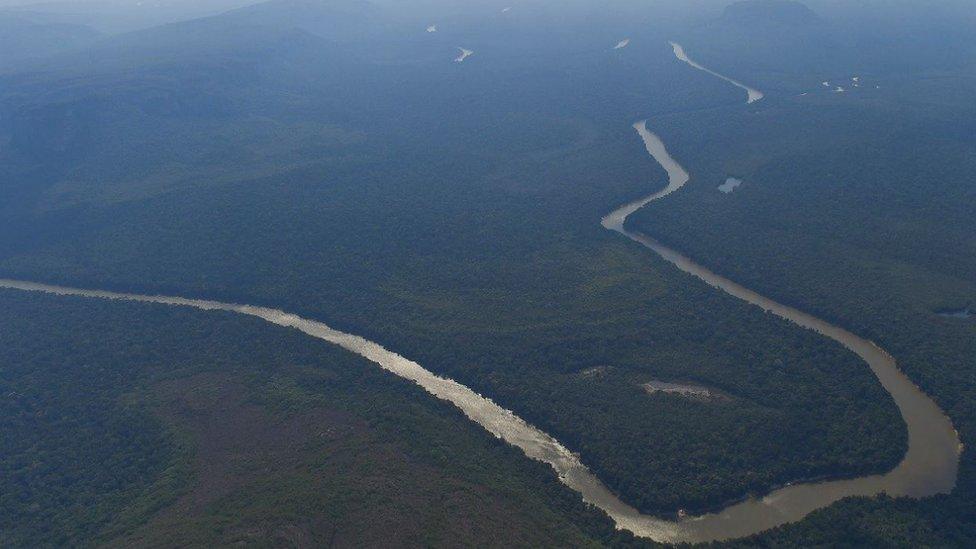
Its forest is home to a a wide variety of birdlife, some of which has only been seen here
- Published28 March 2017
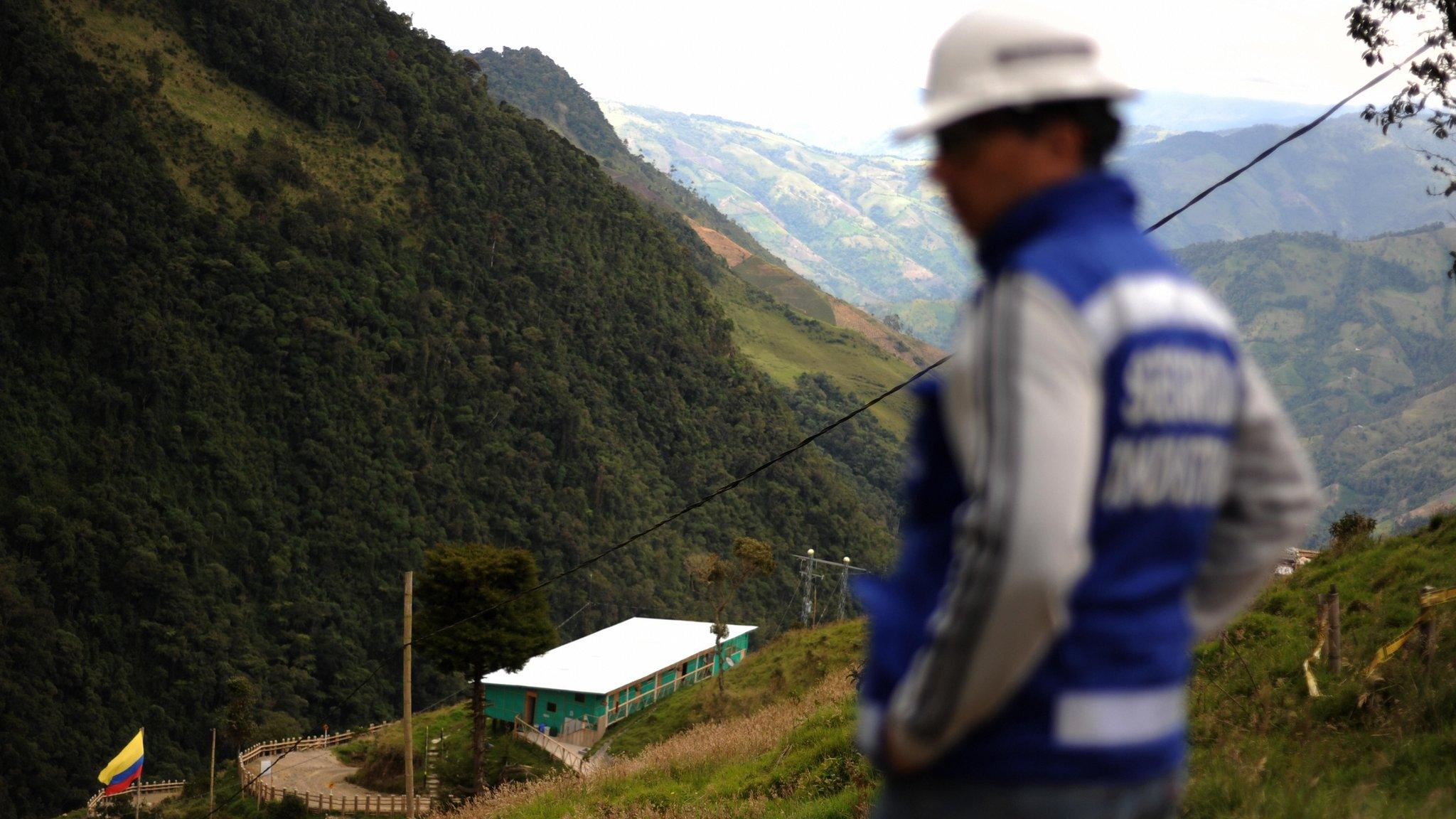
- Published9 February 2016
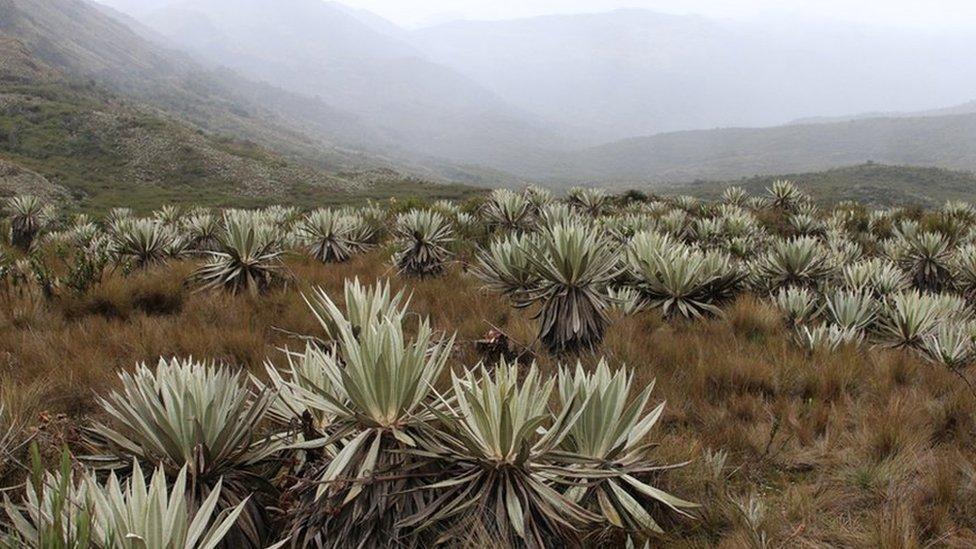
- Published30 January 2018
